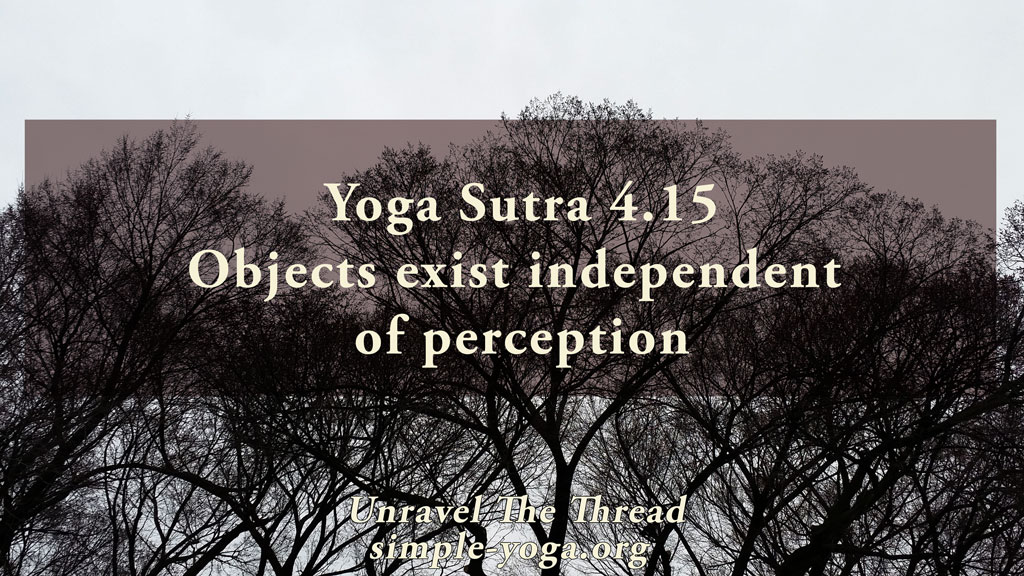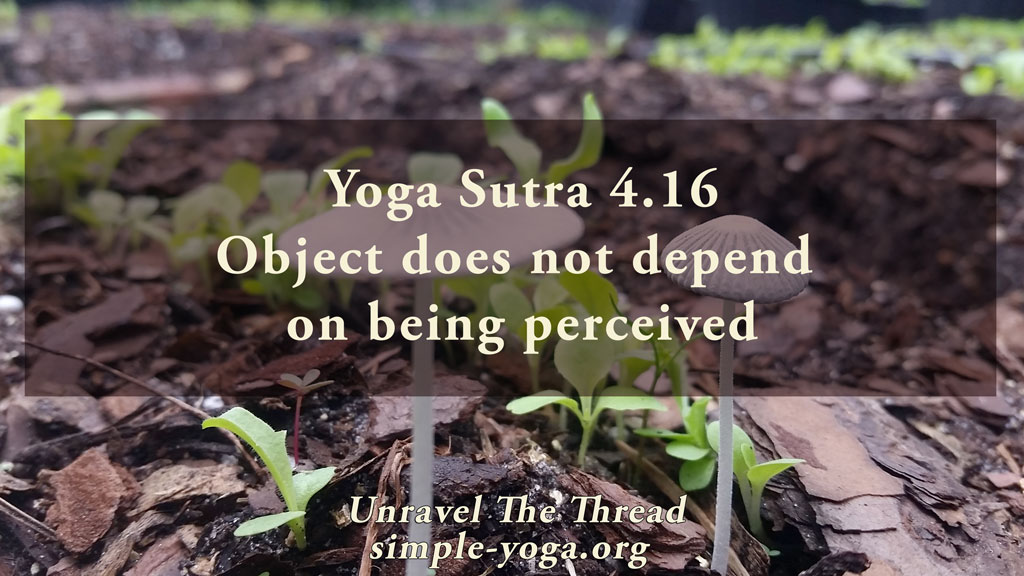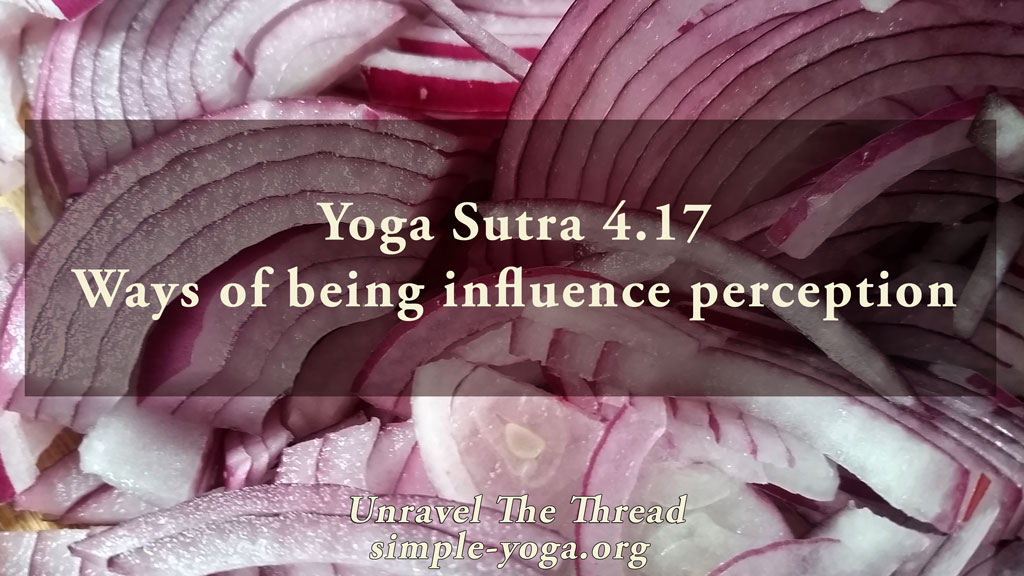
4.15 Objects exist independent of being perceived
September 12, 2022
4.16 Object does not depend on being perceived
September 19, 2022
4.15 Objects exist independent of being perceived
September 12, 2022
4.16 Object does not depend on being perceived
September 19, 20224.17 Ways of being influence perception

4.17 An object becomes known or unknown depending on the coloring of perception.
Nature is real. It exists even when it is not perceived. In addition, nature changes continuously. Although nature and everything that can be experienced exist independently from the perceiver, sutra 2.21 suggests that everything that exists has the purpose of being experienced by the perceiver. Awareness, the active expression of consciousness, enables perceptions, actions, and interactions. However, experiences are influenced by your level of awareness and by the coloring of your awareness. For instance, if you are having a conversation with one of your friends but you keep thinking about another place or time, you will not come to know or understand whatever your friend is saying, because you are not orienting your presence to the interaction with your friend. In addition, even when you are paying attention to your friend’s words and gestures, the content of your friend’s talk will be influenced by your personal, social, and cultural biases. The stronger your beliefs and opinions on the topic your friend is talking about, the more they will influence your perception. Both lack of presence and interference of your ways of being will affect the quality of your participation and interactions. Besides, everyone perceives uniquely according to personal history.
This sutra serves as a reminder that becoming aware of one’s tendencies, opinions and habits will influence perception. When you do any type of yoga practice, the practice itself will help you notice some of the colorings of your own perception. For instance, it is quite common for the person who overreaches in life to find themselves overreaching in yoga.
To what extent are you present in your daily activities?
Can you inquire into the sources of distractions keeping you away from doing what you are doing fully?
How do those distractions influence your perception?
Are there other ways of being interfering with your perception and participation in your life?
Remember sutras 1.6 and 1.7 about knowledge, how do you know what you know?
Is what you know just information that you repeat?
Is what you know, true knowledge, the result of your direct experience?
Is there a difference between what you know and your opinions?
What is the relationship between what you know and timeless pure common sense?
As usual, one more way of exploring the meaning of this sutra is by chanting it.
You can choose to chant it in its traditional form with some of the words coming together:
4.17 taduparāgāpekṣitvāt cittasya vastujñātājñātaṃ
तदुपरागापेक्षित्वात् चित्तस्य वस्तुज्ञाताज्ञातं ॥१७॥
Another option is to chant each word in the sutra individually:
- tat
- uparāga
- apekṣitvāt
- cittasya
- vastu
- jñāta
- ajñātaṃ
If you prefer, you may listen to the podcast:
This is an excerpt from the book Unravel the thread: Applying the ancient wisdom of yoga to live a happy life
If you find Simple-Yoga.org and Unravel the thread useful, consider supporting my labor with a donation, you may also donate using PayPal or Venmo. Thank you!
